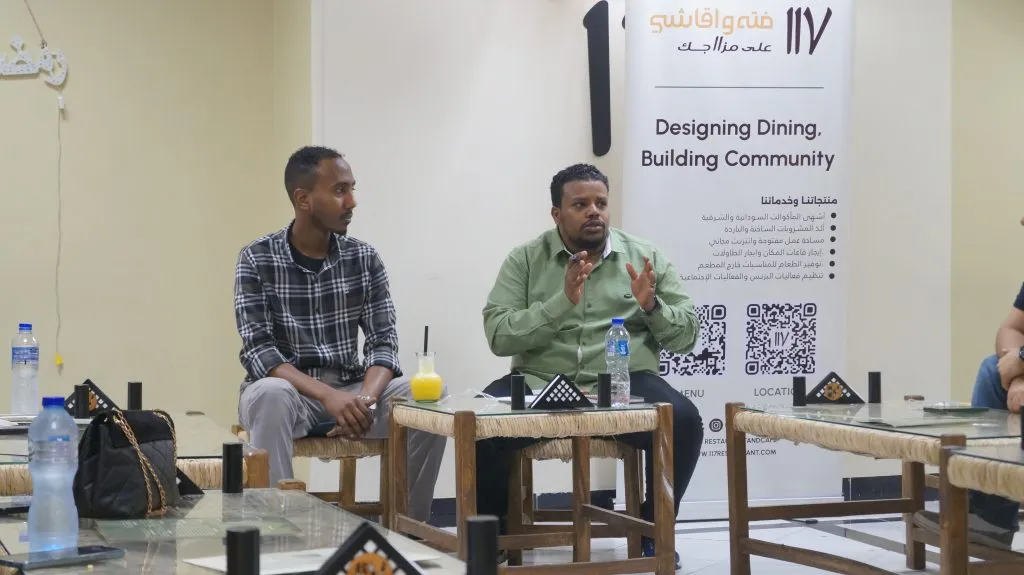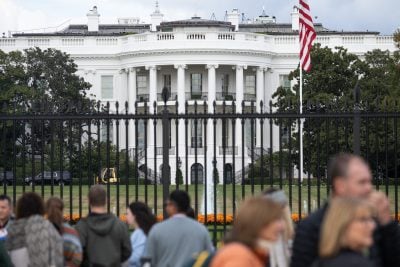It is past noon in Cairo and the call to prayer announces the start of the working day for many businesses.
As Ahmed goes to lift the shutters of the barbershop he has recently opened in the city after having left his home in Sudan due to the war, he cannot help but remember what his life looked like exactly a year ago.
Less than a week before 2023’s Eid-Al Fitr – the Muslim festivity marking the end of the holy month of Ramadan – Ahmed was finalising the last details for the opening of the venue of his dreams in Khartoum.
After seven years of renting out suits in the Sudanese capital, he had finally gathered enough money to open an all-inclusive male salon that would fit suits, style hair and assist in the planning of events.
But merely five days before that could happen, Sudan’s civil war began, and all the efforts he had put into the opening were lost.
“We had put all the capital we had built over the years to open this store the day of Eid – the exact moment when the war erupted,” Ahmed recalls.
“Everything was gone, we had to stop it all because we were located in the very centre of Khartoum, where the battles were taking place.”
Like him, young Sudanese entrepreneurs lost their projects and dreams in a matter of days. Without time to process what was happening, they took what little they could carry with them and fled towards Egypt and an uncertain future.
Fleeing the war to find safety
On 15 April 2023 tensions between the two main armed forces ruling Sudan – the Sudan Armed Forces (SAF) and the Rapid Support Forces (RSF), a military force once aligned with the government – escalated into a war. The two had jointly carried out a military coup in 2021 against the transitional government that had been put in place after the revolt against the 30-year rule of Omar Al-Bashir.
One year on, the Armed Conflict Location & Event Data Project estimates that the war has left 14,790 reported fatalities. According to the UN Refugee Agency (UNHCR), 25m people are in dire need of humanitarian assistance, 18m are facing severe hunger, and the International Rescue Committee claims that more than 9m have been internally displaced, making it the largest internal displacement crisis in the world.
Almost half a million are reported to have arrived in Egypt after the war according to United Nations refugee agency the UNHCR, although the real numbers might be much higher.
Before the war, the Four Freedoms Agreement between Egypt and Sudan allowed both peoples to freely move, reside, work, and own property in the two countries.
Since tensions in the Sudanese capital broke out and quickly spread across the country, that agreement has been put on hold, and legal entry into Egypt by Sudanese fleeing war has been made extremely slow, difficult, and costly.
“Luckily enough, my dad had bought some apartments here just two months before the war started, so we were able to come and settle directly,” Ahmed tells African Business.
Safia El-Fadni and Mohammed Abdullah, a couple of entrepreneurs who were going to celebrate their wedding precisely after the Eid al-Fitr celebration last year, were forced to postpone their union and pursue separate journeys towards Egypt.
Safia, who owned the first factory for sustainable reusable sanitary pads in Sudan, had to leave the country with the older members of her family two weeks after the war began. Her house and factory were located next to a big military base in Khartoum and the constant sounds of fighting made their stay impossible.
Mohammed, now her husband, before the war owned a small marketing company. He had to wait three months before being able to flee the country too.
This enabled him to help transport some of his wife’s factory machinery and items to the city of Port Sudan, from where it has kept operating at a lower capacity.
“We have been working with an initiative called One Million Sustainable Pads, whose goal is to provide one million pads to the Sudanese women struggling to find these products during the war, so our project in Sudan is working on that,” Safia tells African Business from a coffee spot in the centre of Cairo, where she has been coordinating everything remotely since she fled.
Because of the instability of the situation and the infrastructure obstacles in place, she is working on opening the first branch of the pads business in Egypt.

Keeping Sudanese entrepreneurialism alive
In honour of 117 Street in Khartoum’s gilt-edged and lively neighbourhood of Riyadh, which used to be a hub for the active young entrepreneurs of the country, Mohammed’s 117 Café and Restaurant pays tribute to the resilience of the Sudanese community in exile.
With a modern café upstairs and a traditional Sudanese restaurant downstairs, the business serves as a place for community building, where different Sudanese small brands can come to sell their products and where entrepreneurship workshops and talks are organised on a monthly basis.
One day, a Sudanese businessman or woman will talk about their experience after years in Egypt. Another day, someone talks about employment in Egypt and advice on how to overcome the struggles faced by Sudanese in the local job market. Everyone shares their lessons.
“When we came here, we felt that the Sudanese community needed such activities, we needed to gather, to discuss what is next for us, to support each other in the field of business and employment here in Egypt,” Mohammed tells African Business.

Building afresh but with hopes of return
Ahmed is one of the more than 30 people assisting the event at Mohammed’s place. The smell of Sudanese incense, the sound of music, and an atmosphere of ambition and ideas make him feel as if he was still on one of the terraces of 117 Street in Khartoum’s Riyadh.
He shares with the crowd how he managed to launch both his barbershop and restaurant less than a year after he lost all of his capital from his businesses in Sudan. He also recounts the difficulties faced when trying to market a business to an Egyptian audience.
“Some Egyptians do not trust Sudanese cutting their hair or serving them food,” he says.
While the barber shop is mainly frequented by other Sudanese, he has opened a fast-food place in a central area, partnering with an Egyptian company that helped him adapt the food to the Egyptian taste and market.
“I want to go a step further and welcome also Egyptian clients, and compete like any other business.”
A little more than a month from its opening, Ahmed is happy to see how his two businesses in the new country are up and running after everything he went through during the past 12 months, which he calls the worst of his life.
Mohammed’s multidisciplinary space, which now marks four months since its opening, has already reached break-even. And his wife Safia, who finds herself in the last phases of opening a branch for her pads factory in Egypt, is optimistic about her project’s future.
“Sudan challenges you to always make more effort: to have a decent normal life you need to do a thousand times more than what people in other places do,” Ahmed says.
“Sudanese were already resilient, and when put in Egypt under the right conditions, they shine, they do more.”
Despite being now confronted with new challenges, a new country, new bureaucratic obstacles, racism, and deep homesickness, Sudanese resilience and hope remains high.
“People have a survival mindset: what happened happened, what is next?” Mohammed says.
The three entrepreneurs would not hesitate for a second if they could go back to their country, but for the time being, they are committed to succeeding in Egypt.
What drives them is the thought of one day returning to Sudan and helping build their country from scratch once again – “bringing the experience we have acquired in other places to build a Sudan where people can live safely and thrive,” Mohammed says.
Want to continue reading? Subscribe today.
You've read all your free articles for this month! Subscribe now to enjoy full access to our content.
Digital Monthly
£8.00 / month
Receive full unlimited access to our articles, opinions, podcasts and more.
Digital Yearly
£70.00 / year
Our best value offer - save £26 and gain access to all of our digital content for an entire year!
 Sign in with Google
Sign in with Google 



